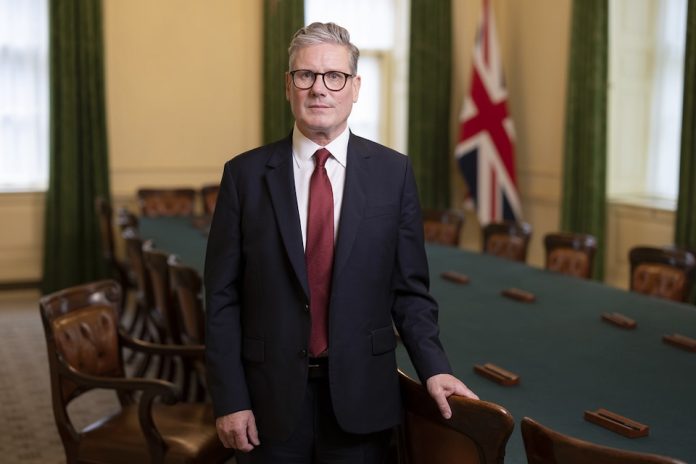The Prime Minister of the United Kingdom, Keir Starmer, in his first keynote speech since coming to Downing Street, will warn the British public that things will get worse before they get better, The Independent reported.
Shortly after his convincing election victory in July, Starmer repeatedly claimed that the previous Conservative government had left Britain in a deplorable state following its departure, allowing anti-migrant riots to be sparked this month.
At Tuesday’s speech, the Prime Minister will say the government has also tackled the “societal black hole.” This comes after Chancellor Rachel Reeves said last month that the government had inherited a £22 billion black hole in the public finances from the previous Conservative administration. Despite the difficulties, the government is determined to tackle a host of problems, from overcrowded prisons to long queues for health services, according to the stalwart.
I said change would not happen overnight. When there is rot deep in the heart of a structure, you can’t just cover it up. You can’t tinker with it or rely on quick fixes. You have to overhaul the entire thing. We have inherited not just an economic black hole but a societal black hole and that is why we have to take action and do things differently. Part of that is being honest with people about the choices we face and how tough this will be. Frankly, things will get worse before we get better.
He also said that under the Conservative government it was much harder to respond to the riots this month than in 2011, when he was head of the Crown Prosecution Service, saying violent thugs had exploited cracks in British society. In 2011, rioting and looting led to more than £200 million worth of damage and more than 3,000 arrests.
The statement echoes the riots that began after the murder of three girls in the north of England was falsely blamed on an Islamist migrant based on internet misinformation. Despite, during the days of rioting, mosques, hotels where immigrants were staying came under attack across the country. More than 400 rioters faced arrest and prison sentences.
Starmer was forced to cancel his summer holiday to deal with the riots targeting Muslims and migrants. “Not having enough prison spaces is about as fundamental a failure as you can get. And those people throwing rocks, torching cars, making threats, they didn’t just know the system was broken. They were betting on it. They were gaming it. They saw the cracks in our society after 14 years of populism and failure, and they exploited them. That’s what we have inherited,” according to him.
Addressing those he describes as the working people of Britain, which are teachers, nurses, small business owners and firefighters, Starmer will say his government has taken the first steps towards the change people voted for on 4 July. Except, according to him, the dire state of the UK’s public finances, which his finance minister says could lead to a £22 billion overspend this year, means his government will have to make tough decisions.
If we don’t take tough action across the board, we won’t be able to fix the foundations of the country like we need. I won’t shy away from making unpopular decisions now if it’s the right thing for the country in the long term. That’s what a government of service means, according to him.
The statements came as the government prepares to present its first budget, which is expected to be released on 30 October. As a result, the Chancellor has to make tough decisions on spending and taxation, which has already attracted a number of criticisms, including from the previous government.
Conservative Party chairman Richard Fuller said: “Just two months in and Keir Starmer has taken winter fuel payments off 10 million pensioners …. The soft touch Labour Chancellor is squandering money whilst fabricating a financial black hole in an attempt to com tbt public into accepting tax rises, and literally leaving pensioners in the cold.”
Despite the Prime Minister’s overall popularity and approval, ratings plummeted nearly two months later, largely due to the unrest. The approval rating remained positive, dropping 16 points, namely from +19 to +3. In the meantime, 53 per cent of Britons have a negative view of the new prime minister, while 37 per cent expressed a positive attitude, giving a net approval rating of -16, according to the latest Opinium and YouGov poll in early August.
